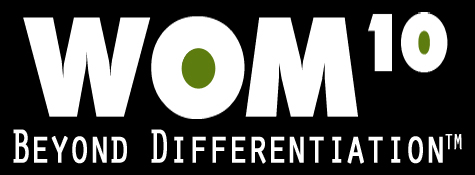This is about Social Media…specifically about the use of the right channel for the right message…specifically focused on LinkedIn. If this isn’t of interest…no need to continue reading (just trying to help you save time if you don’t care).
Everyone has been around long enough to understand (at least at a basic level) what the social channels (social media networks like LinkedIn, Facebook, twitter, etc.) all mean and how they are used…ignorance isn’t a viable excuse any longer. Today the power is with the customer…the users, like you. If you don’t like something, now you have the power to “vote with your voice” and let the company or people know your opinions and preferences.
The difference today, unlike a decade ago, is that your vote reaches thousands of people rather than a few you used to just tell in person. This power has changed (or should be changing) every business in the world. And after you vote with your voice, you also get to “vote with your feet” and not patronize the business. This all simply translates to getting people’s (and the company’s) attention.
Fast forward to today. People are complaining on LinkedIn (in particular) that others are treating it as if it was like facebook…posting personal information, giving opinions, promoting, and sharing “nonbusiness” related information. Those complaining want it to remain a “professional networking” platform and to not get polluted with all the personal stuff…this belongs on facebook and a myriad of other social channels. I don’t disagree…each channel has a purpose and should be used according to the audience it reaches and the type of information that is shared.
Here’s the issue. Many of the people complaining are demanding LinkedIn management does something to “police this situation” and remove the offenders. While this sounds like a great idea (and was 10+ years ago) it isn’t the right solution today. They are not the ones in charge of their platform…WE, THE USERS, ARE THE ONES IN CHARGE. We make the decisions…we have the final vote. We have the ability to control our destiny on the social channels…we just have to use it.
Think of it this way…if you listen to a classical music channel on the radio or Pandora and all of a sudden a country song or rap song starts playing, you can either change the channel on the radio…voting with your listening clout or you can vote it off as in Pandora…either way you have the control to change the music to what the channel was intended…no need to call the station or send an email, you simply vote with your participation (and ad dollars) or lack thereof.
Another great example is the kids of the boomer generation. They got tired of seeing their parents and all the other “old people” jumping onto facebook and posting things they didn’t care about. Rather than complain to facebook about it, they voted with their feet and left facebook…for Snapchat, Instagram, and a host of other “millennial focused” sites…leaving their parents to talk about gardening on facebook.
BOTTOME LINE…If you don’t like people giving their political opinions or showing family photos or a host of other things on LinkedIn then tell them they would be more appropriate on a different channel like Facebook. If they continue, VOTE…remove them from your connections. If everyone does this, the offenders either play by the rules of the channel or they have no connections…which makes them pretty irrelevant on LinkedIn.
Don’t ask for more restrictions from LinkedIn…we have the power to make these changes. You and I are really the ones in charge!! Asking LinkedIn to be the police will just add more complexity, confusion, and time…which won’t help solve the problem. It would be like telling Monsanto we’re not happy with the product so change it…we see how well that has worked.
So let’s use the power (with our voice and voting) we all have as members of the social channel(s) and keep our social communities and neighborhoods the way they were intended. If others still want to share your political opinions, there just won’t be anyone in their network available to listen!

